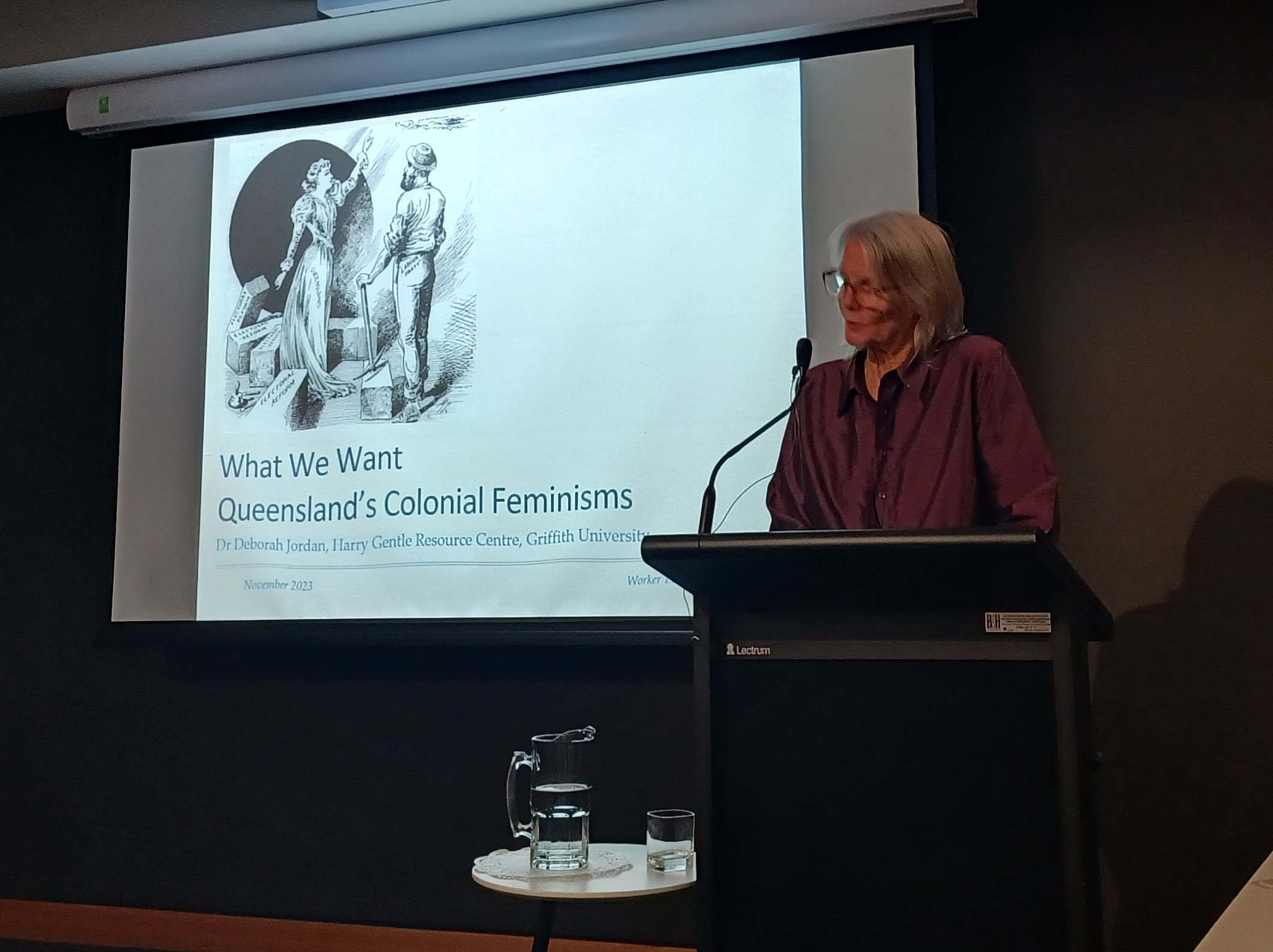
The Harry Gentle Resource Centre (HGRC) congratulates Visiting Fellow Dr Deborah Jordan on the publication of her book, Australian Women’s Justice: Settler Colonisation and the Queensland Vote. The eBook version is now available to read via the Griffith University Library.
Deborah recently presented her HGRC Visiting Fellowship research in a well-attended talk entitled, What We Want’: Queensland’s Colonial Feminisms, at the Queensland State Archives. A recording of her talk can be viewed on the QSA Facebook page.
Deborah’s talk addressed how biography intersects with social movement through the lives of early settlers Mary McConnel, Fanny Trundle, Lady Sarah Lilley and others who became suffragists and philanthropists.
The first generation of women settlers in Queensland (arriving before separation from New South Wales in 1859) were profoundly determined by an imperial problematic and colonial encounters. The frontier wars, brutal convict origins and limited number of white women shaped the nature of early free settlement.
Take-up of pristine Indigenous lands proceeded apace, especially through the promotion of immigration and a land grant system. The male-only vote for the Lower House had strict eligibility requirements, and a white man could have multiple votes depending on assets. Despite the huge influx of settlers who were to outnumber them, pastoralists dominated the economy and parliament for the next fifty years.
The depth of divisions between white women, let alone between women of different races, on the issue of the ‘property’ vote and the impacts of the wage disparity between white and black labour becomes clearer. The version of colonial feminisms these women argued shaped later campaigns for full adult suffrage.
Dr Jordan is a Petherick Reader at the National Library of Australia, an internationally-recognised Nettie and Vance Palmer scholar, and Adjunct Fellow in History at Monash University specialising in research on women at the intersection of literature, history and environment.


